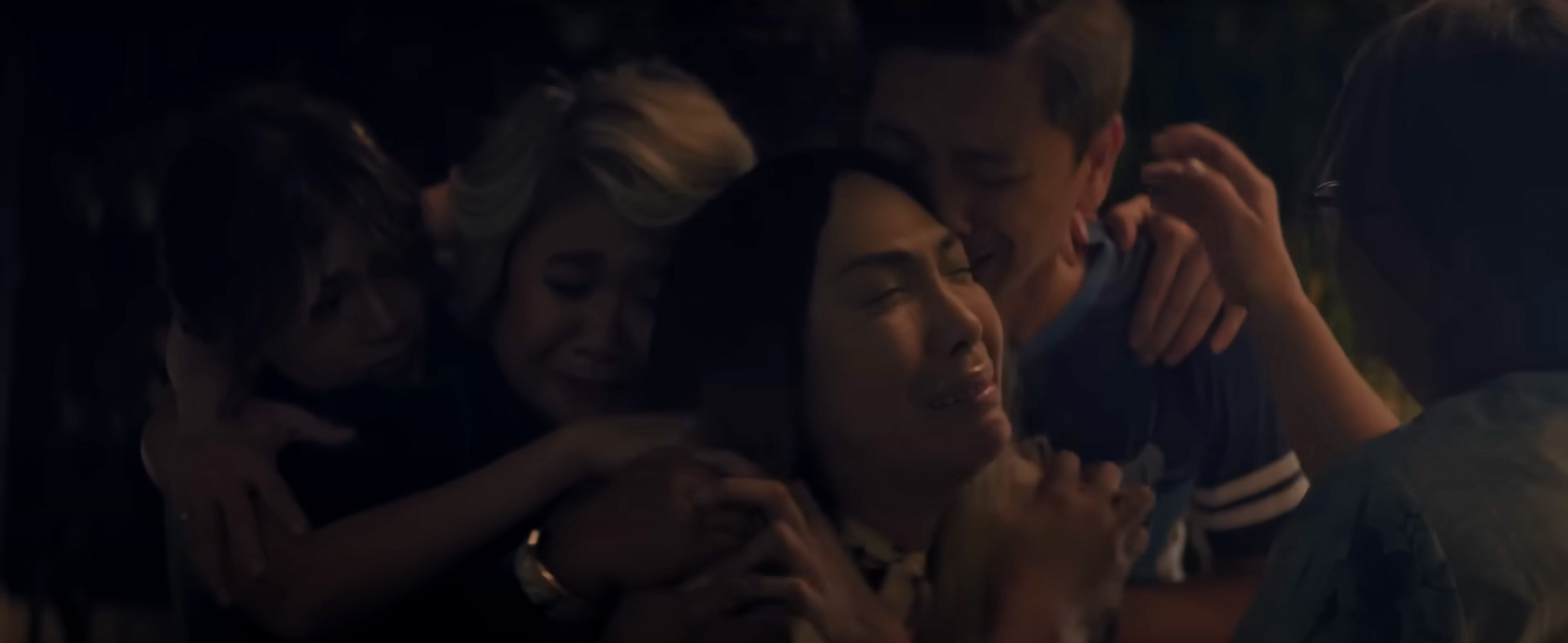AFTER YEARS of quest in a different land, who would welcome the hero as he returns to his homeland? Is it the warmth of a harmonious and stable family or another quest only he can solve?
Directed by Palanca Hall of Famer Jun Robles Lana, “And the Breadwinner Is…” is an official entry to the 50th Metro Manila Film Festival released on Dec. 25. The film, which tackles the struggles of Filipinos who were forced to work abroad due to lack of opportunities at home, featured some of the most well-known artists in the film industry, including Vice Ganda, Eugene Domingo, Jhong Hilario, Gladys Reyes, Joel Torre, Malou De Guzman, Kokoy de Santos, Maris Racal and Anthony Jennings.
Bambi Salvador (Vice Ganda), an overseas Filipino worker (OFW) based in Taiwan, returns to his family in Arayat, Pampanga after the end of his contract. He expects a house that reflects the fruits of his labors but experienced disappointment and despair upon arriving home.
He is welcomed by a pile of debts, prompting him to leave their home and travel mindlessly.
An incident leads his family to believe that he died. Ironically, his death will serve as the lifeline of his fragmented and struggling family because of his life insurance.
Through its comedic and family drama genre, Lana depicted Bambi as the embodiment of the roles that an OFW is expected to play — an antidote to poverty, a cash register that should solve the family’s financial woes.
Aside from its prominent comedy genre built from puns and inside jokes referencing Vice Ganda’s previous films, the movie exhibited the reality of diaspora. Filipinos like Bambi and Baby (Eugene Domingo) are left with no choice but to leave their home, forcing themselves to create a home in a different place that mimics the one they left behind.

Bambi’s journey to Taiwan and his eventual return to Pampanga is comparable to a hero’s eventual return in an epic. The limited jobs in the Philippines pushes individuals like Bambi to seek a better life for their families in faraway lands, earning the title of “modern-day heroes” because of their sacrifices and contributions to the economy. This journey exemplifies the diaspora trope, which explores themes of displacement and connectedness, often highlighting the disconnection with foreign spaces while longing for home.
Such a trope resonates deeply with Filipinos, especially OFWs, and reflects their situation of leaving behind their family in exchange for a better future. This captured the collective displacement of Filipinos and made it a compelling narrative in the film.
In the film’s case, Bambi creates a spatial setting in Taiwan similar to that in Arayat with his friends in an attempt to develop a sense of familiarity or the idea of home.
As the one given the opportunity to change the course of their lives, Bambi is stretched thin while providing for his family’s, friends’ and distant relatives’ needs in order to displace his guilt.
Bambi’s guilt out of pure conscience backfires and becomes the springboard for Mayet’s (Gladys Reyes) accusations against him. Mayet claims that Bambi keeps track of every help he provides her husband Biboy (Jhong Hilario) so they will feel indebted to him.
This film’s pinnacle is the confrontation among members of the family that revealed unresolved issues. Their banter became an avenue for the actors to unleash their capabilities with unrestrained intensity. While Vice Ganda’s monologue elicited tears, Gladys Reyes stood out for her natural delivery of lines.
As discussed by Filipino critic Nicanor Tiongson in his exposition of the four values in Philippine film and drama, one of the inclinations of Filipino works is to revel in tearjerkers. Lana’s film adopted the formula just like any family-centered Filipino drama that attempts to depict a protagonist facing a difficult quest or a harrowing hardship.

Despite the compelling family drama and it’s attempt to provide nuances in the OFWs’ experiences, the film falters in its superficial treatment of the Salvador family’s individual struggles. This shortcoming is further compounded by disjointed editing, with fragmented and disconnected scenes making the narrative non-cohesive.
The issues tackled in And the Breadwinner Is… felt contrived as if these were included merely for the sake of including them. The multiple societal issues, such as the experiences of a gay balikbayan, the struggle to open up as a gay child to a Filipino family, the financial struggles of the Filipino family and the dichotomy between the company owner’s nephew Tonton (Anthony Jennings) and the scammer’s sister Budeng (Maris Racal) were presented in a disjointed way. The complex editing style, however, might disillusion viewers into thinking that the film was able to touch upon these subjects better than it actually did.
The use of the SB19 song “Mapa” helped solidify And the Breadwinner Is… as a family drama. But other aspects of the film were nothing out of the ordinary. Baby’s character as the representation of Filipino immigrants was relevant. However, she was introduced abruptly, adding to the non-cohesive narrative.
Vice Ganda’s fusion of melodrama and comedy may seem novel as it touched on the diaspora trope, centering on OFWs rather than his usual comical films that often deal with superficial themes. However, And the Breadwinner Is… is just a reflection of his long-standing artistic approach of combining the two—a social commentary under the guise of the comical dialogues of his characters.

The question of what will happen to the returning hero after years of staying in a foreign land lies at the heart of And the Breadwinner Is…. Its strongest point was its exploration of family, sacrifice and belonging. However, the film’s attempt to actually address issues within these subjects is at best fragmented.
Nevertheless, the film serves as a reminder that while heroes, modern-day or not, are burdened with the responsibility of saving everyone, they too, deserve a home that welcomes them after a weary journey. F



